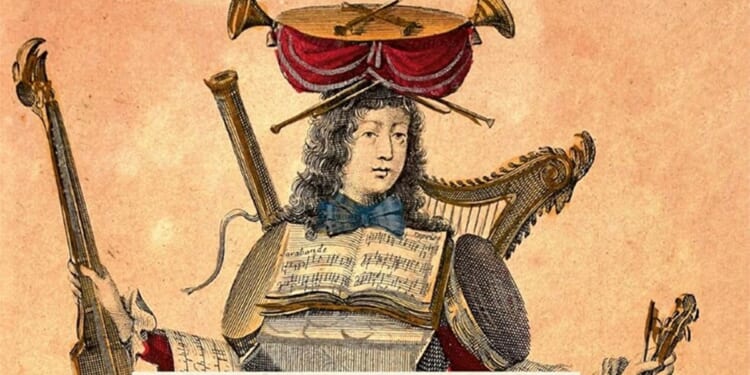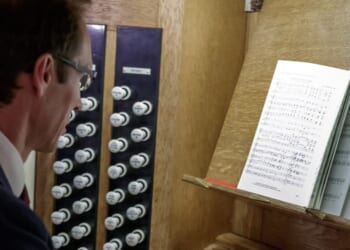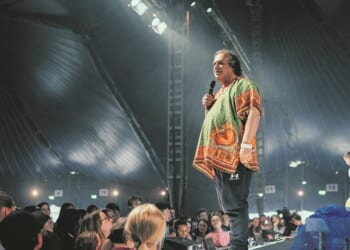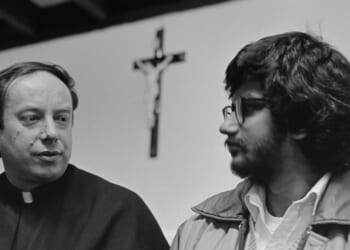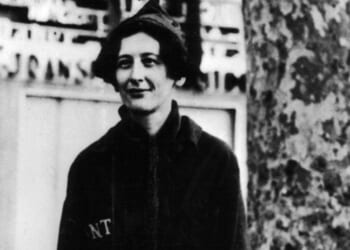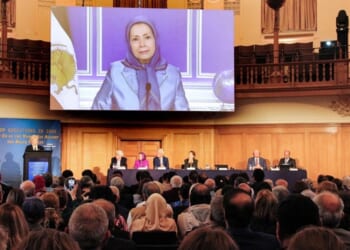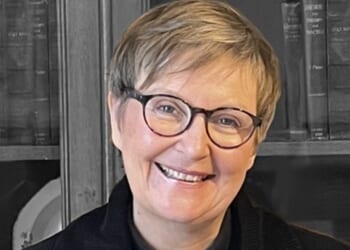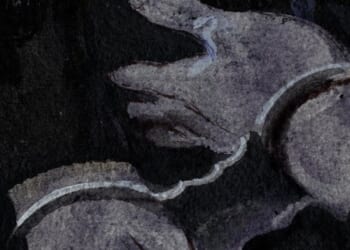THIS coffee-table book is a treat. Suitable for those with or without musical training, it follows in a line of illustrious publications in a similar genre from the author, such as The Devil’s Atlas, The Madman’s Library, and Fox Tossing, Octopus Wrestling and Other Forgotten Sports. The motivation for compiling such diverting trivia becomes apparent when one realises that Brooke-Hitching has long been a scriptwriter and factfinder for the BBC TV show QI, and perhaps because he grew up “in an antiquarian bookshop and now lives in his own dusty heap of old maps, books, and musical instruments”.
This beautifully illustrated and lavish book is a feast for the eyes and for the mind. Each page contains barely believable facts, from strange instruments, cryptographs, curious compositional instructions, and experimental failures, to mystifying deaths. Examples include the Vienna vegetable orchestra, ice trumpets, and a balnaphone, where the player is immersed in a hot bath to play the hydraulic instrument.
Synaesthesia, or seeing musical keys and melodies as colours or shapes, is a feature of Brooke-Hitching’s research, as is musical “unappreciation”, such as the Berlin Tribune’s critic on Wagner’s Tristan und Isolde in 1871: “It sounded as if a bomb had fallen into a large music factory and had thrown all the notes into confusion.”
Composers have sometimes given peculiar performance instructions for their work. For example, Erik Satie dictated that his Limp Preludes (for a Dog) should be played imbibet (drunkenly) and corpulentus (fatly), while another of his piano pieces is “to be played with both hands in the pocket”. A better-known composition, Henry Mancini’s theme to the 1963 film The Pink Panther, is to be played “Groovy mysterioso”.
Composers could also be harsh on their students. In a British Library manuscript, you can find Mozart’s blunt approach to correcting his English pupil Thomas Attwood, by writing “You are an ass” on Attwood’s homework.
The 20th century was a time of musical fakes, from six newly “discovered” Haydn sonatas to the miraculous appearance of the music of a long-lost Russian composer, Mykola Ovsianiko-Kulikovsky, whose alleged work was recorded by the Leningrad Philharmonic Orchestra and hailed as one of the great Soviet composers. He never existed. He was an invention of the Ukrainian composer Mikhail Goldstein, in retaliation for receiving a bad review.
Many of the curiosities in this collection of musical confectionery are visual as much as literary. You can dip in anywhere for a diverting or even bonkers fact that will make entertaining conversation at any dinner party.
The Revd Dr Jonathan Arnold is Michael Ramsey Professor of Faith, Culture and the Arts at the University of Kent, and Executive Director of the Social Justice Network, in the diocese of Canterbury.
The Madman’s Orchestra: The greatest curiosities from the history of music
Edward Brooke-Hitching
Simon and Schuster £30
(978-1-3985-3240-3)
Church Times Bookshop £27

